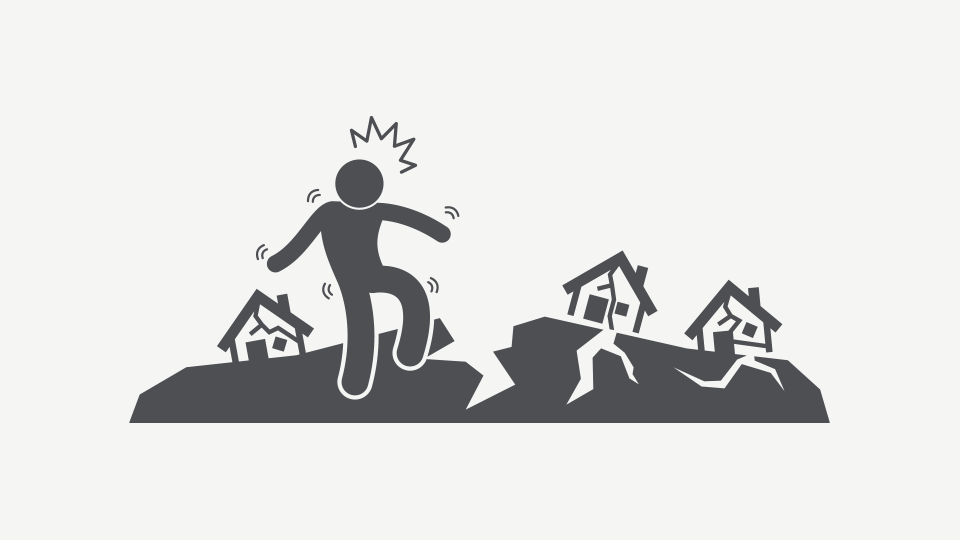Before an Earthquake
- Be familiar with your common environments: your office, classroom, or home. Know how and where to take cover during a quake.
- Secure top-heavy furniture, bookcases or cabinets to walls. Department should contact Facility Services to perform this work or, if doing it themselves, obtain a campus building permit.
- Secure cabinet doors with latches.
- Do not store heavy objects where they may fall on people.
- Move tall bookcases away from exits and do not use them as room dividers.
- Store heavy items at floor level.
- Back up computer and other research data and store elsewhere on a regular basis.
- Determine beforehand the nearest exit from your work, residence, or classroom area and the route to reach that exit following an emergency, if necessary. Also, establish an alternate route to use if the first route is blocked or dangerous.
- Review the campus Chemical Hygiene Plan for specific seismic safety guidelines of hazardous materials (Chemical Hygiene Plan).

